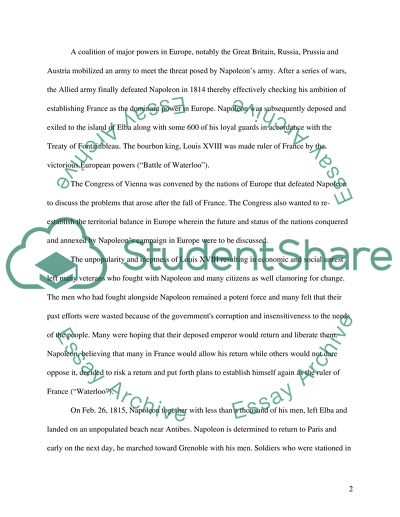Cite this document
(“Battle of Waterloo Essay Example | Topics and Well Written Essays - 3000 words”, n.d.)
Battle of Waterloo Essay Example | Topics and Well Written Essays - 3000 words. Retrieved from https://studentshare.org/miscellaneous/1518055-battle-of-waterloo
Battle of Waterloo Essay Example | Topics and Well Written Essays - 3000 words. Retrieved from https://studentshare.org/miscellaneous/1518055-battle-of-waterloo
(Battle of Waterloo Essay Example | Topics and Well Written Essays - 3000 Words)
Battle of Waterloo Essay Example | Topics and Well Written Essays - 3000 Words. https://studentshare.org/miscellaneous/1518055-battle-of-waterloo.
Battle of Waterloo Essay Example | Topics and Well Written Essays - 3000 Words. https://studentshare.org/miscellaneous/1518055-battle-of-waterloo.
“Battle of Waterloo Essay Example | Topics and Well Written Essays - 3000 Words”, n.d. https://studentshare.org/miscellaneous/1518055-battle-of-waterloo.


